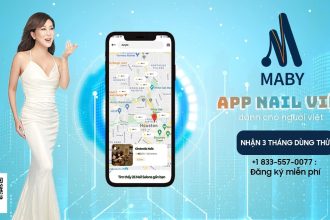In today’s digital age, students rely heavily on the internet for research, communication, and accessing educational resources. However, this increased connectivity also brings various online security risks, such as data breaches, identity theft, and restricted access to certain websites or content. To counter these challenges, more and more students are turning to Virtual Private Networks (VPNs) as a reliable solution. In this article, we will explore the benefits of VPNs for students, focusing on how they enhance online security and provide broader access to resources.
I. The Importance of Online Security for Students
1.1 Data Security and Privacy Concerns
With the proliferation of online learning platforms and cloud-based services, students often store and transmit sensitive information over the internet. This includes personal details, academic records, and research data. However, cybercriminals are constantly looking for opportunities to exploit this valuable information. By using a VPN, students can establish a secure encrypted connection that protects their data from potential eavesdropping or interception.
1.2 Protection against Cyber Threats Students are prime targets for cyber threats, including phishing attacks, malware, and ransomware. These threats can compromise their devices, steal personal information, or disrupt their studies. A VPN adds an extra layer of security by encrypting the internet connection, making it harder for malicious actors to access students’ data or infiltrate their devices.
II. Bypassing Content Restrictions and Accessing Resources
2.1 Overcoming Geographical Restrictions
Some educational institutions or countries impose content restrictions, limiting students’ access to certain websites, online platforms, or academic resources. This can hinder their ability to conduct comprehensive research or access materials vital to their studies. By connecting to a VPN server located in a different country, students can bypass these restrictions and access the resources they need, expanding their learning opportunities.
2.2 Unblocking Streaming Services and Educational Platforms
Many streaming services, such as video-on-demand platforms or digital libraries, have region-specific content. Similarly, certain educational platforms may restrict access based on the user’s
location. VPNs enable students to overcome these limitations by connecting to servers in the desired region, granting them access to a wider range of educational content and resources.
III. Enhancing Online Privacy and Anonymity
3.1 Protection on Public Wi-Fi Networks
Students often rely on public Wi-Fi networks, such as those found in coffee shops or libraries, to study or collaborate with classmates. However, these networks are notorious for being vulnerable to hacking attempts. By using a VPN, students can encrypt their internet connection, ensuring that their online activities remain private and protected, even on unsecured networks. This added layer of security gives students peace of mind while studying remotely.
3.2 Preventing Online Tracking and Monitoring
Online privacy is a growing concern, as students’ browsing habits and personal information are often tracked by various online entities, including advertisers and data brokers. VPNs help mitigate this issue by masking students’ IP addresses and encrypting their internet traffic, making it difficult for third parties to track their online activities. This enhanced privacy enables students to browse the web without the fear of being monitored or targeted with intrusive advertisements.
IV. Choosing the Right VPN for Students
4.1 Factors to Consider
When selecting a VPN for students, it’s essential to consider certain factors such as security features, server locations, connection speeds, and user-friendly interfaces. It’s also crucial to ensure the VPN provider has a strict no-logs policy to guarantee the privacy of students’ online activities.
4.2 Recommendations for VPN Providers
Several reputable VPN providers cater specifically to students’ needs. Before selecting any, just need to confirm that they support various, devices, platforms and especially has VPN extension for Chrome, as it is most used by students. Each provider offers various features, competitive pricing plans, and user-friendly applications, making them suitable options for students.
Conclusion
In an era where digital connectivity is integral to education, students face numerous online security risks and content restrictions. VPNs serve as an effective solution, enhancing online security and providing students with broader access to educational resources. By utilizing a VPN, students can protect their sensitive data, bypass content restrictions, maintain privacy, and unlock a world of knowledge that transcends geographical boundaries. As online threats continue to evolve, incorporating a VPN into students’ online routine is becoming increasingly essential for ensuring a safe and productive learning environment.














